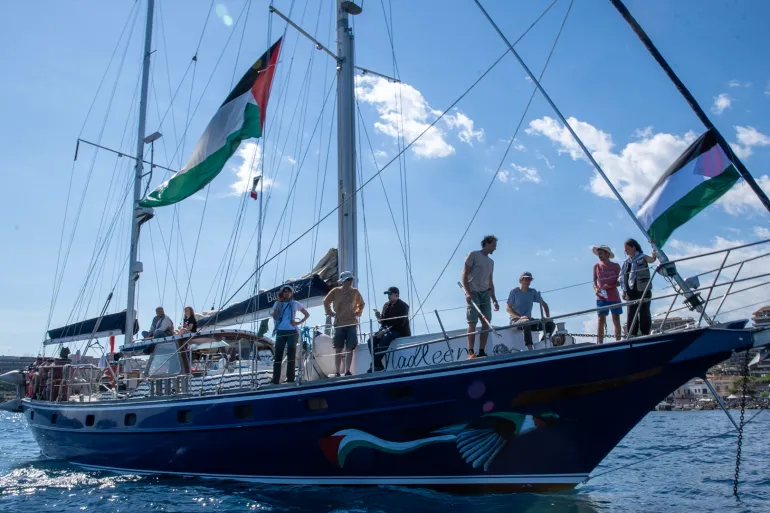
Wafric News – June 10, 2025
The Madleen never needed to dock in Gaza to make history. Its interception by Israeli forces in international waters on June 9 may have halted its physical journey, but not its political one. The message it carried now echoes louder than any aid parcel ever could: Gaza is not alone, and the blockade will not go unchallenged.
The vessel, organized by the Freedom Flotilla Coalition (FFC), was on a mission of solidarity—not scale. On board were 12 activists from seven countries, including renowned climate justice campaigner Greta Thunberg. Their goal was not only to deliver symbolic food and humanitarian aid, but to shine an unflinching spotlight on Israel’s illegal siege of the Gaza Strip.
Everyone on board knew the risks. The United Nations has long acknowledged that Gaza requires 500 trucks of aid per day to meet basic humanitarian needs—far beyond what Madleen could carry. And yet, the voyage was not about quantity but conscience. The world has watched starvation unfold, largely in silence. The Madleen refused that silence.
Intercepted in international waters by Israeli naval forces, the ship’s seizure violated maritime law. Under international legal norms, Israel has no jurisdiction over vessels in international waters delivering aid. Palestinian American lawyer and FFC organizer Huwaida Arraf called the detentions “arbitrary, unlawful, and a blatant affront to international law.”
This is not Israel’s first assault on sea-borne solidarity. In 2010, Israeli commandos stormed the Turkish ship Mavi Marmara, killing nine civilians. Fifteen years on, justice remains elusive. And still, Israel acts with impunity, shielded by the complicity of allies—chief among them the United States and the European Union.
Madleen follows a legacy of resistance, but also bears a deeper symbolism. It was named after Madleen Kulab, Gaza’s only known female fisher, whose life and livelihood were shattered by Israel’s brutal siege. Once a symbol of resilience, she now shelters in a damaged home, displaced and unable to return to the sea. Her namesake carried her struggle forward.
Israel’s sea blockade of Gaza, enforced since 2007, has turned the Mediterranean into a prison wall. Though Palestinians were granted limited maritime access under the 1993 Oslo Accords, Israel has systematically reduced that space, suffocating Gaza’s fishing industry and its people’s connection to the sea.
International law is clear: acts of collective punishment and the use of starvation as a weapon are war crimes. So too is the failure of other states to act. Yet European governments—whose citizens made up the majority on the Madleen—have not only shirked their legal duty to sanction Israel, but continue arming its war machine, even as public opinion turns sharply against them.
Despite this, the Madleen sailed. Despite this, the Madleen was intercepted. And because of this, the Madleen has succeeded.
“We are doing this because no matter what odds we are against, we have to keep trying,” Greta Thunberg said before the voyage. “The moment we stop trying is when we lose our humanity.”
The Madleen did not need to land to make landfall in our conscience. It reminded the world that the siege on Gaza is neither abstract nor forgotten. Every interception at sea is a moral indictment on those who let it happen. Every activist detained is a mirror held to the inaction of their governments.
And so, while the Madleen was stopped, the current of resistance it unleashed is still moving. Gaza’s freedom is still out there—waiting. And the sea, for now, remains one of its last open fronts.
By WafricNews Desk.
By WafricNews Desk.


Comment
To post a comment, you have to login first
LoginNo Comments Yet...